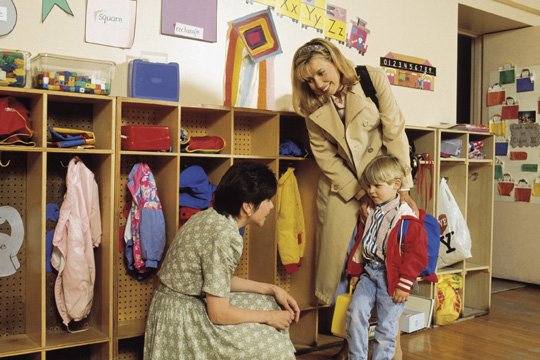Do you find yourself endlessly repeating a request to your child, only to receive no response at all? Exasperated, your request morphs into constant nagging until finally, you resort to “If you don’t do what I say now the consequences will be dire!” Nobody ends up feeling great about themselves and the cycle merely continues.

Put yourself in your child’s shoes for a moment. Just like you, they have their own preoccupations, concerns and priorities. Think about it – would you like to be interrupted in the middle of a favourite activity, your concentration broken, your sense of enjoyment shattered, because someone intrudes into your space demanding you do something there and then?
Children pass through numerous milestones as they develop. They are bombarded continuously with millions of stimuli; there’s a great deal to take in. When they blank out and switch off, or if they need extensive coaxing to move from time to time, it’s hardly surprising!
So what’s the catch?
Finding the right balance between nurturing our children with love and compassion, allowing them the freedom to make mistakes as they find their own way, while simultaneously steering them in a safe and healthy direction that leads to their success, fulfillment and happiness (and ours as parents), is no easy task!
A good starting point is to take a look at your own parenting style and consider the effect this has on your child. The two most contrasting styles are termed as Autocratic and Permissive.
What sort of language do you use when speaking with your child?
Is your tone authoritative and demanding, tolerant or indulgent? When you ask your child to do something is it really necessary at that moment or is it more about your need for control? And how do you react to certain behaviours in your child? Do you mete out punishment if they do not listen? Or are you exceedingly liberal?
⇒ Related Read: How To Build Strong Language And Communication Skills
What about your child? Our own upbringing, background and cultural experiences colour the parents we become, so much so that we can fail to recognise the distinctive characteristics and temperament of our children. It can come as a shock when we realise they are not carbon copies of us or their siblings!
How To Talk To Children So They Listen

1. Positive communication
Do you find yourself shouting at your child from another room – “Turn off the TV!”- Instead of going up to him, getting down to his level to gain his attention and modelling the positive communication you would like in return? Try doing this next time.
2. Let all expectations be known
Calmly state your expectations from the outset, keeping explanations short and simple, using one or two-word reminders later if necessary. “Teeth please!” With some simple routines and clear instructions in place, given time, your child will understand what’s expected of him.
3. State the facts and offer other options
Empower your child with facts and realistic options that allow her to make independent choices that lead to positive learning experiences, rather than unattainable goals. For example, if the bedtime routine is bath – teeth cleaning – storytime, but your child repeatedly wants to skip straight to the story, offer her a choice that she can reasonably figure out herself. “Ok, you don’t have to bathe or clean your teeth tonight, but that means no story too. Or you can enjoy the story as soon as you’ve had a bath and cleaned your teeth. What would you like to do?”
4. It goes both ways
Good communication is a two-way process. Stop what you are doing when your child talks to you and listen to what he has to say. Model good listening if you want him to do the same! If you want to communicate better with your child it may mean changing tack. As you find an approach that results in a greater balance of mutual listening and talking, you’ll find you gain the rewards of mutual trust and respect in the process.
Fiona Walker, Principal Of Schools & CEO, Julia Gabriel Education Centre.
This article was first published in The New Age Parents e-magazine.
* * * * *
Enjoyed reading this or learned something new? Click the Like and Share button below!
Want to be heard 👂 and seen 👀 by over 100,000 parents in Singapore? We can help! Leave your contact here and we’ll be in touch.



























































Leave a Comment: